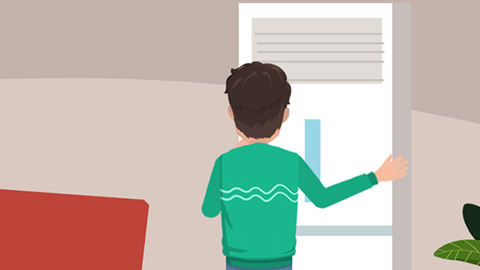What Causes Headaches from Using Air Conditioning?
Generally, headaches caused by exposure to air conditioning may be due to cold stimulation, cerebral hypoxia, dehydration, migraines, sinusitis, and other factors. Symptomatic management through general treatments and medications may be necessary. If discomfort occurs, it is recommended to seek medical attention promptly and undergo appropriate treatment under a doctor's guidance. A detailed explanation is as follows:

1. Cold Stimulation
When cold air from an air conditioner directly blows onto the head, it may cause cerebral blood vessels to constrict and spasm, resulting in headaches. The mechanism involves cold-induced vasoconstriction, which reduces blood supply to the brain and consequently triggers headaches, possibly accompanied by dizziness and neck stiffness. It is recommended to adjust the direction of the air conditioning airflow to avoid direct exposure to cold air and to wear appropriate clothing to keep the head warm.
2. Cerebral Hypoxia
Air-conditioned rooms are often sealed with poor air circulation. Prolonged exposure to such an environment may lead to cerebral hypoxia and subsequent headaches, which might also be accompanied by fatigue and difficulty concentrating. It is recommended to ventilate the room regularly to maintain fresh indoor air and to avoid staying in air-conditioned environments for extended periods.
3. Dehydration
The air in air-conditioned environments tends to be dry, and staying in such rooms for prolonged periods can lead to fluid loss and mild dehydration. Dehydration increases blood viscosity and reduces oxygen supply to the brain, causing headaches, which may be accompanied by thirst, decreased urine output, and dry skin. It is recommended to replenish fluids regularly while using air conditioning and to use a humidifier to regulate indoor humidity.
4. Migraine
Migraines are typically caused by genetic factors, disordered neuronal excitability, environmental changes, and other factors. Patients with migraines are more sensitive to temperature fluctuations, and variations caused by air conditioning may trigger abnormal neural discharges, leading to migraine attacks. Symptoms may include pulsating headaches, photophobia, and phonophobia. It is recommended to take medications such as ibuprofen tablets, aspirin enteric-coated tablets, and topiramate tablets as directed by a physician.
5. Sinusitis
Sinusitis refers to inflammation of the sinus areas, primarily caused by bacterial, viral, or fungal infections. In patients with sinusitis, the inflamed sinus mucosa may become further swollen due to cold air and dust in air-conditioned environments, causing headaches, which may be accompanied by nasal congestion and rhinorrhea. It is recommended to undergo treatment with medications such as roxithromycin tablets, cefalexin dry suspension, and clindamycin hydrochloride tablets under medical guidance.
It is also recommended to engage in regular physical exercise, such as jogging or brisk walking, to enhance physical resistance and reduce the likelihood of headaches caused by exposure to air conditioning.




